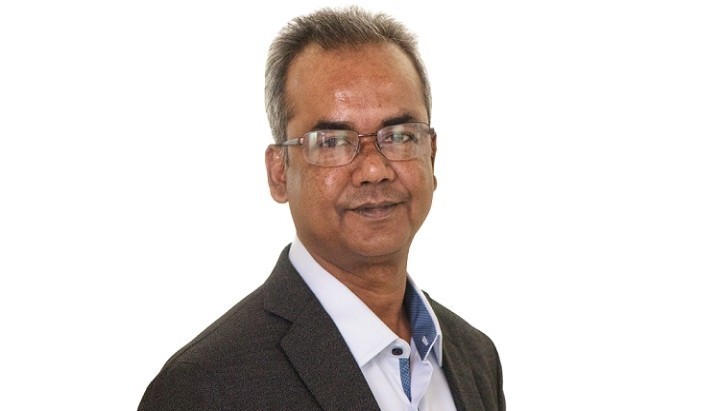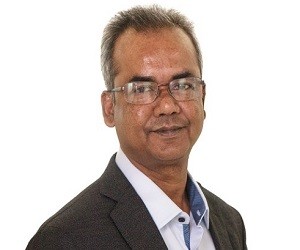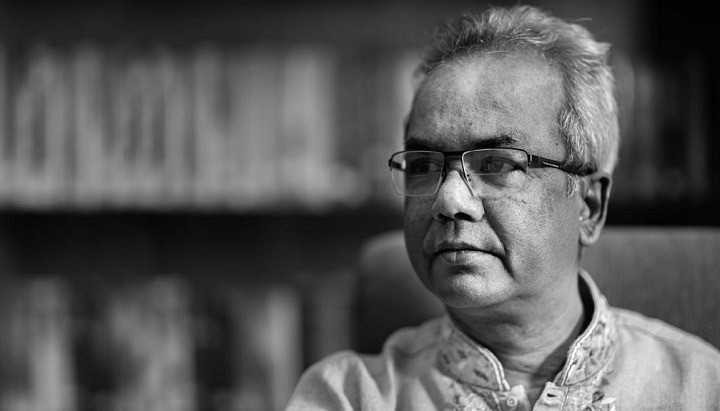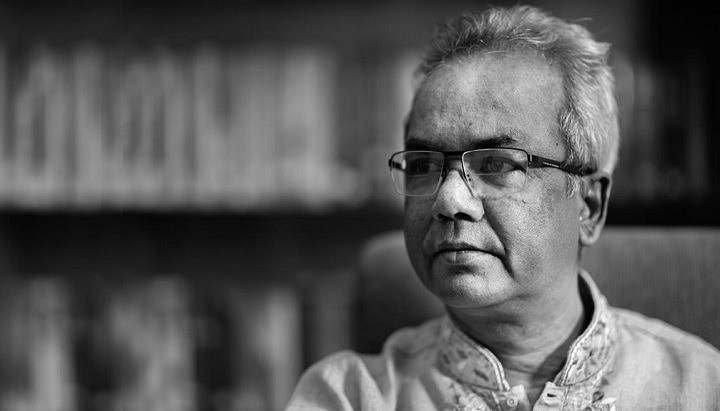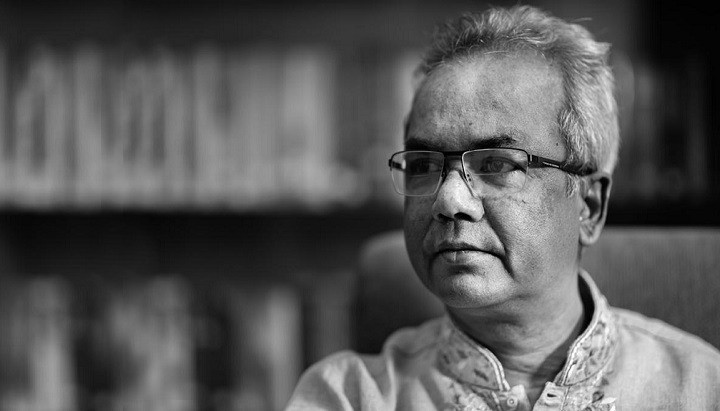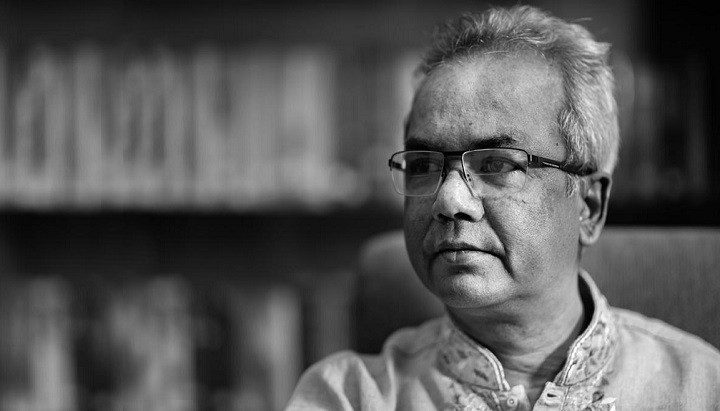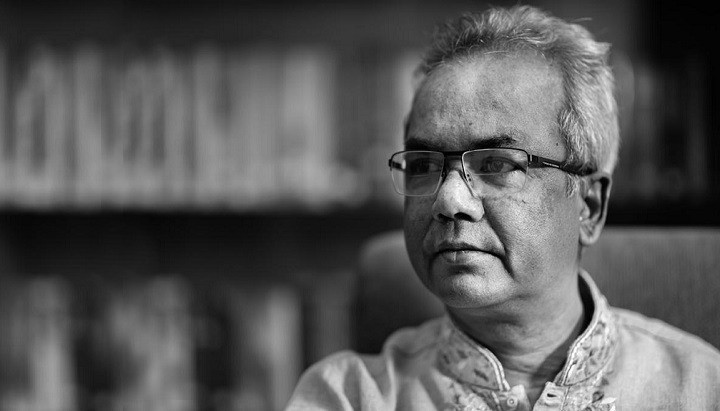Rashed Chowdhury - a confessed murderer, the freak killer. On August 15, 1975, the father of the nation Bangabandhu Sheikh Mujibur Rahman was killed along with his family by some despicable people. And National and international conspiracies were behind this heinous murder in history of Bangladesh. Rashed Chowdhury is one of those who directly committed this worst incident. After the brutal murder on August 15, 1975, the murderer Mushtaq gave the killers OF Bangabandhu impunity. Moshtaq's illegitimate government promulgated the Indemnity Ordinance. In the face of army discontent and disorder, Mushtaq was deposed on November 3, 1975. In a series of coups and counter coups, Ziaur Rahman seized power on November 7. Zia was one of the masterminds of the August 15 conspiracy. So, he seized power and upheld the Indemnity Ordinance. Those directly involved in the murder were sent abroad in a special plane. Once in power, Zia rewarded the murderers with diplomatic jobs. This is another horrible chapter in history. Ershad came to power after Zia's death. He also milked the self-confessed murderers of the Father of the Nation. Those who were doing diplomatic jobs were promoted. Even after the fall of Ershad, the murderers were out of everyone’s reach. In 1991, Bangladesh had its first time in the country under a non-partisan caretaker government. BNP won that election. In the Parliament of 1991, the Awami League and BNP agreed and returned to the parliamentary democracy system. But BNP did not agree to repeal the Indemnity Ordinance. The path to justice for the killers of 75 remained blocked. Begum Zia gave another round of promotion to the murderers. Meanwhile, murderer Rashed Chowdhury was transferred to Brazil. Awami League won the 1996 election and came to power. Rashed Chowdhury escaped from Brazil and took refuge in the United States, the biggest guardian of democracy in the world. It is their utmost responsibility to protect the world human rights. The country tends to find if any country has violated democracy or human rights. If democracy is not restored, the US punishes like a strict class teacher.
Even the slightest deviation of human rights does not escape the attention of US officials. They punish with various sanctions. Sometimes I think, what would happen to world democracy, what would happen to human rights without US. The worst murderer in the history, who himself portrays his devilishness, entered the country which is such a defender of human rights.
Many thought this is it. Rashed Chowdhury will not be able to escape anymore. United States spends so much and does so much work to promote human rights in the world. The most brutal self-confessed murderer has gone to their country! There is no way for the batter to survive. We were sure that Rashed Chowdhury is no longer safe. I kept waiting, when will I get the news that he has been arrested. Has Rashed been sent to Guantanamo Bay prison or elsewhere? But surprisingly, the self-confessed murderer Rashed Chowdhury got political asylum in the United States. He moves freely here and there in the United States. The then US President was Bill Clinton. During a visit to the US, Prime Minister Sheikh Hasina requested to the US officials that the self-confessed murderer should be sent back to Bangladesh. Clinton promised to look into the matter. That's it until then. Awami League came to the charge of running the country and revoked the Indemnity Ordinance. The proceedings of the trial of Bangabandhu's killers began. Instead of a special tribunal, Sheikh Hasina took a bold decision to proceed with the trial of Bangabandhu's murder under conventional law. A long legal battle ensued. A few of the killers were arrested and brought to justice. But some were absconding including Rashid, Dalim, Noor Chowdhury. Among them, the murderer Rashed Chowdhury was sitting in the lap of the US, the contractor of human rights. The trial process of killing Bangabandhu went on for a long time. On the other hand a diplomatic initiative began to bring back the self-confessed murderers, who have escaped abroad, and bring them to trial. Abul Hasan Chowdhury was the State Minister for Foreign Affairs during that period. Along with Sheikh Hasina, he also met the US President. Later, in an interview given to a daily, Abul Hasan Chowdhury said, "I remember President Bill Clinton telling Prime Minister Sheikh Hasina in the Oval Office, 'I don't want to see them (the accused) stay in this country.’' Sirajul Haque, the lawyer for the state in the Bangabandhu assassination case, was an optimistic person. He told me that if the trial is conducted under the customary law, there will be no question in abroad. It will be easy to bring back the murderers.' But until the Awami League government left power in 2001, Rashed Chaudhuri remained in the US. The BNP-Jamaat alliance came to power in October 1, 2001 elections. Meanwhile, Bangabandhu's murder case was under trial in the High Court. Barrister Maudud Ahmed became the Law Minister. He admitted in his own book (How Was I in Jail, page-141) that his government stalled the trial in the Supreme Court. The BNP chairperson blocked the trial of this heinous murder, while on the other hand reinstated the fugitive murderers. Meanwhile, the United States, the protector of 'human rights', decided to grant political asylum to the self-confessed murderer in 2004 while granting him citizenship in 2006. Awami League came to power for the second time under the leadership of Sheikh Hasina in 2009. The government took the initiative to finish the trials of Bangabandhu's murder. Sirajul Haque passed away on October 28, 2002 with the grief of not seeing the execution of the murderers of Bangabandhu. Anisul Haque took responsibility to finish his father's unfinished work. After the judgment of the Appellate Division, the argument for repatriating the fugitive murderers became stronger. Meanwhile, the government strengthened diplomatic efforts to bring back the murderers including Rashed Chowdhury. Those who were arrested were executed. I had hoped that the US would at least return Rashed Chowdhury quickly as justice was secured through a long legal battle. Bangladesh made a written application to the United States many times to get Rashed Chowdhury back. Alas! The caretaker of human rights, The United States kept silent on this matter. The United States grants citizenship to an immigrant under the Immigration and Nationality Act. Since May 24, there has been a lot of discussion about this law in Bangladesh. Under this law, the United States has announced a new visa policy in Bangladesh. The Act contains detailed provisions on how an immigrant can become a US citizen. The law says it is not enough to stay in US for getting citizenship, a person must fulfill at least 20 conditions at any given time. Important among these is that a person convicted of any criminal offense (regardless of the country), human rights violator, murderer, will be considered ineligible for citizenship. Not only that, even if an immigrant obtains citizenship by concealing any such information, if it is proved in the future that he obtained citizenship with false information or concealment of information, his citizenship will be revoked and he will be deported from the United States. Be clear, there are no ifs and buts in law. A country that upholds human rights so highly must have such kind of law. But, in the case of Rashed Chowdhury, was this law has been applied? No, it didn’t.
In 2018 and 2020, Prime Minister Sheikh Hasina wrote two letters to the then US President Donald Trump. Trump asked the Attorney General's office to look into the matter. But after Joe Biden became president, everything stopped. Now, when the Foreign Ministry of Bangladesh contacted the US State Department, they said that the matter was not theirs, but that of the Attorney Office. The law minister himself contacted the US Attorney's office, asked for time. But in the past year and a half, the US Attorney's Office has not responded about it. This is how it goes. When the caretaker of human righs doesn’t deports a self-confessed and Supreme Court convicted murder. Then Canada also does not send back murderer Noor Chowdhury. Canada's argument is that since the death penalty is prohibited in that country, they will not extradite a person sentenced to death. Rashid, Dalim and other fugitive murderers are also being held in different countries, as the US has given asylum to a murderer. Readers, close your eyes and think, a person killed the US president and took refuge in Bangladesh. How long do you think Bangladesh could keep him? Would it be scandalous to give him Bangladesh citizenship? But the United States can do everything. What they do is right. Whatever they say is the law in this world.
Now when there is an excitement among the Bangladeshi politicians over the US visa policy, I remembered the case of the murderer Rashed Chowdhury. I took a moment and remembered the long history. After the announcement by US Secretary of State Blinken, the leaders of the two main opposition parties are screaming out as it is their 'victory'. Awami League leader Obaidul Quader has discovered that Mirza Fakhrul can’t sleep over this. Mirza Fakhrul is no less. He has researched that 'Awami League's tone has softened.' Soon after the announcement of the new visa policy, Awami League, BNP and Jatiya Party leaders visited the US ambassador's residence. The US got what it wanted in less than 24 hours.
The United States wanted a loyal allegiance among all political parties, an absolute authority in the politics of Bangladesh. Dominance over the politics of Bangladesh. The political uproar over a visa policy may seem like 170 million people in Bangladesh are crazy about going to the United States. If you don't get a US visa, there will be a tragedy in Bangladesh. The US ambassador is also encouraging. During an event recently, he said, "Visa policy is not a concern for those who want fair elections."
I want to ask the US ambassador, a rickshaw puller who drives the rickshaw in the sun during the day also wants fair elections. Will the rickshaw-puller get a US visa? Or the young genius of the village who is studying despite much difficulties or the village farm laborer or a widow who destroyed due to the debt of Dr. Yunus, They all are in favor of fair polls. Will they get a US visa? Many people who already applied for visas to the US are rejected. Does the list of names of those who are not granted visas by the United States for various reasons are also published? But it will be done in this case. Humiliating them publicly is one of the objectives of this visa policy. The United States State Department's website provides a count of how many (non-immigrant) visas are issued to each country each year. The list shows that in 2013, 28 thousand and 80 Bangladeshi citizens were given visas by the United States. In 2014, a maximum of 35 thousand 25 people were given visas. Last year, 29 thousand 202 people got US visa from Bangladesh. In the last 10 years, approximately 200,000 Bangladeshis have received US visas while about an equal number of applicants were also rejected. The US visa policy is not a headache for ordinary citizens. This visa policy has created instability for those who are important in various fields of the state,. The big head of the administration admits his children in the United States, has his wife also living there. But he lives a bachelor life in Dhaka. They send all the money there and cover themselves with the cloak of 'honesty'. This visa policy made them upset. Politicians, who made a second home in Canada, built a palace in Begum Para, kept their wife and children there, who plan to fly there "if something happens" in the country. The US visa policy has left them worried. The businessman, who was close to Hawa Bhaban has now become a bigger Awami League than Awami League itself. He has become a so called new soldier of ‘Sheikh Mujib Army’ by flushing out banks and smuggling the money to USA, Canada. US visa policy is suffocating news for him. The United States made this visa policy willingly. Democracy, voting, human rights are not destroyed by the common people. These were destroyed by a handful of greedy thieves, robbers, opportunists. They are in all parties. They poke their noses in every administration during any governments. They are the ones who question elections, weaken democracy. The US visa policy is aimed at them. Therefore, this visa policy can be appreciated. If they don't muddy the waters with democracy and elections, then there is no reason why democracy-loving people in this country should not have free, fair and impartial elections. But the problem is elsewhere. In almost all cases, US policies and laws are clear like water. The US administration takes the shape of the container in which it is placed. For example, according to the law that declared the visa policy, the murderer Rashed Chowdhury is not supposed to get citizenship. But the despicable killer is still living in the United States.
According to the Immigration Act, a former chief justice convicted of corruption is to be deported from the United States. He is fine. A military officer, who was in the news for 'Crossfire' during his time in RAB, who pushed through everything during the 1/11, he lives in the United States under what principles? Seven murders pardoned in this world for unconditional US loyalists. Hamid Karzai's unbridled corruption is not a crime. But Chile's Allende has to die for not surrendering to the US. So the question is whether these laws and policies will apply equally to everyone in Bangladesh? Those who are sitting civilly in Bangladesh with US citizenship. Those who want to create a situation like one-eleven. They want to establish a long-lasting undemocratic government in the country through the process of depoliticization, they are the enemy of democracy, the main obstacle to fair elections. Will they be covered by this policy? Who will determine who is against for a fair election? The US loyalists in this country? The reason for all these questions is past experience. In post-independence Bangladesh, the United States applied laws and policies biased to their interests, as evidenced by their declassified documents. A review of these documents shows that the United States did not send wheat in 1974 to Bangladesh by applying Section 103 (d) (3) of PL 480. That section of PL 480 was applied at the time to allegations that sacks of Jute had been exported to Cuba. The declassified documents contain conversations between Henry Kissinger and the then-Assistant Secretary of State Tom Edes. Both Bangladesh and Indonesia exported goods to Cuba, but Kissinger stopped sending 74 thousand tons of wheat to Bangladesh excluding Indonesia.
US declassified documents show the killers of the 75 had been in contact with the US embassy since 1973. On July 11, 1973, Major Rashid went to the US Embassy and talked about the purchase of arms on behalf of Ziaur Rahman. Newbery, then an official at the US embassy, must have known that a mid-level military officer could not come up with an arms purchase proposal like this. In 1974, the murderer Farooq officially informed the US Embassy of his plan to stage a military coup in Bangladesh. The then US Ambassador Davis Eugene Boster reported this information through his message number 2158 in Washington. The US documents revealed that before the August 15 tragedy, the killer Farooq visited the US embassy several times. However, the declared policy of the US is that they do not support illegal seizure of power and military coups in any country. But on August 15, 1975, there was tacit acquiescence of the US in overthrowing an elected president, killing him along with his own family. Not only in Bangladesh, the US overthrew elected government in many countries and put their preferred puppet government in power. The US has imposed sanctions on RAB over human rights issues. But they did not raised any voice against the biggest human rights violation in the history of Bangladesh. They did not seek abolition of the Indemnity Ordinance but gave citizenship to murderers. A little deeper analysis shows that when the US becomes overly interested in a country, when policies are made about a country, it faces a big disaster. It sees power shifts. Attempts are made to bring the US-backed government to power. However, in countries those stand firmly on their self-respect, the leaders of those countries who can awaken and unite the people in this matter, can take a position against the will of the US. Just like Mahathir's Malaysia or the Turkey. The US made every effort to defeat Erdogan in the Turkish elections. But Recep Tayyip Erdogan's strong leadership and popularity prevented that. Another strong leader Sheikh Hasina is well aware of US intentions. That is why she was speaking harshly against the US. But the complacency of some Awami League leaders after the visa policy upsets me. Bangladesh saw what the American fans of Awami League did in 1975. Fears loom that Bangladesh is moving towards another August tragedy?


